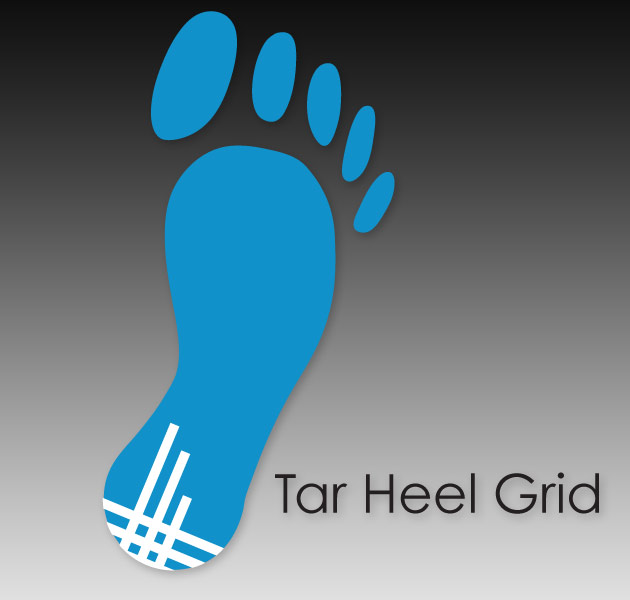Researchers at the University of North Carolina at Chapel Hill have a new distributed computing resource through the efforts of the Renaissance Computing Institute (RENCI) and Information Technology Services’ Research Computing.
The Tar Heel Grid, a distributed computing system that provides the high throughput computing services needed to solve computationally demanding research problems, began accepting jobs this month. The Tar Heel Grid is a heterogeneous environment and supports jobs running in the Linux, MacOS X or Windows operating systems. While ITS Research Computing operates several high performance and high throughput systems for the campus community, the Tar Heel Grid provides additional resources for parameter sweeps, Monte Carlo simulations and other serial software applications.
Tar Heel Grid uses Condor (http://www.cs.wisc.edu/condor/) as its core software. Developed at the University of Wisconsin at Madison, Condor is a set of tools that turns distributed computers into a high throughput grid computing system by linking the computers, providing a system for managing jobs and resources, and using spare compute cycles when the machines are not in use by their regular users.
ITS Research Computing manages the new grid’s software services and computer users across the UNC campus can connect their computers to the grid using Condor. Computer users who link to the Tar Heel Grid remain in control of their resources and can establish policies for use of their machines by colleagues who use the grid. In return for sharing their resources, users have access to a larger pool of machines that can tackle large, demanding problems. Tar Heel Grid participants also have the satisfaction of contributing to scientific discovery at Carolina.
Individual machines or sets of resources can be connected to the Tar Heel Grid by individual users or by campus departments. Groups can connect sets of resources by installing the client grid software. Odum Institute for Research in Social Sciences recently connected 50 computers to the Condor “flock.” For security reasons, no computers that contain sensitive data should be connected to the grid. For instructions on how to add computers to the grid, visit Tar Heel Grid Getting Started (http://tarheelgrid.unc.edu/wiki/index.php/Getting_Started).
Researchers looking to submit jobs to the Tar Heel Grid should use the ITS-maintained job management host. Departments and larger research labs can set up their own local job management host. Users should contact the Tar Heel Grid administrators at tarheelgrid-admin@unc.edu to establish their job submission process.
For more information about the Tar Heel Grid, visit http://tarheelgrid.unc.edu.
To see the status of computers and jobs in the system, visit the CondorView Web pages.
To join the “tarheelgrid” listserv, visit http://mail.unc.edu/lists/.
About RENCI
The Renaissance Computing Institute (RENCI), a multi-institutional organization, brings together multidisciplinary experts and advanced technological capabilities to address pressing research issues and to find solutions to complex problems that affect the quality of life in North Carolina, our nation and the world. RENCI leverages its expertise and resources in leading edge computing, visualization, networking and data technologies to develop partnerships to solve problems. Founded in 2004 as a major collaboration of Duke University, North Carolina State University, the University of North Carolina at Chapel Hill and the state of North Carolina, RENCI is a statewide virtual organization.



